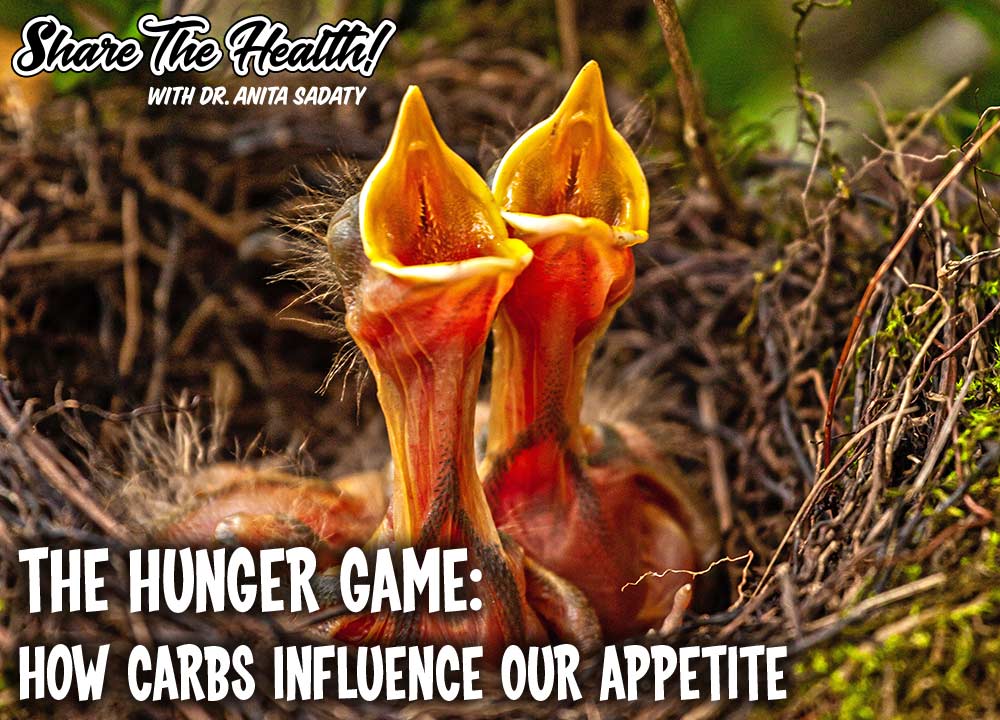
By MaryAnn Jones
The Hunger Game: How Carbs Influence Our Appetite
Have you ever wondered why certain foods leave you feeling more satisfied, while others seem to trigger a never-ending cycle of hunger? The hormone insulin plays a significant role in regulating our appetite and hunger levels. Understanding how insulin influences our hunger can help us make informed choices about our diet and maintain a healthy relationship with food.
Insulin and Blood Sugar Regulation
➔ Insulin is primarily known for its role in regulating blood sugar levels. When we consume carbohydrates, our digestive system breaks them down into glucose, which enters the bloodstream. In response, the pancreas releases insulin to facilitate the uptake of glucose into our cells. By promoting the storage of excess glucose in the liver and muscles, insulin helps maintain stable blood sugar levels.
The Satiety Factor
➔ Insulin acts as a key player in signaling satiety, the feeling of fullness and satisfaction after a meal. When insulin is released in response to food intake, it triggers the release of hormones that suppress appetite, such as leptin and peptide YY (PYY). These hormones send signals to the brain to indicate that we have eaten enough, helping to reduce further food consumption.
Carbohydrates and Insulin Response
➔ The type and amount of carbohydrates we consume can influence the insulin response and subsequently affect our hunger levels. Simple carbohydrates, such as those found in sugary drinks and refined foods, are quickly broken down into glucose, leading to a rapid insulin surge. This can result in a subsequent drop in blood sugar levels, triggering feelings of hunger and cravings for more carbohydrates.
Protein and Insulin Response
➔ Unlike carbohydrates, protein has a minimal impact on insulin levels. However, protein-rich foods can still contribute to satiety. When we consume protein, it triggers the release of hormones, such as glucagon-like peptide-1 (GLP-1) and cholecystokinin (CCK), which help promote feelings of fullness and reduce appetite.
Fat and Insulin Response
➔ Fats have a minimal effect on insulin levels when consumed in isolation. However, when combined with carbohydrates, fat can slow down the absorption of glucose into the bloodstream, leading to a more gradual insulin response. This can contribute to sustained energy levels and prolonged satiety.
Insulin Resistance and Hunger
➔ In individuals with insulin resistance, the body’s cells become less responsive to the effects of insulin. This can disrupt the appetite-regulating signals, leading to increased hunger and a higher likelihood of overeating. Managing insulin resistance through lifestyle modifications, such as regular exercise and a balanced diet, can help improve appetite control.
Balancing Insulin and Hunger
➔ To maintain a healthy appetite, it’s important to focus on a balanced diet that includes a variety of nutrients. Opt for complex carbohydrates, such as high-fiber vegetables, whole fruits, and beans, which provide sustained energy and a more gradual insulin response. Incorporate protein-rich foods, healthy fats, and fiber to promote feelings of fullness and stabilize blood sugar levels.
Questions?
Do you have questions about how hormone insulin plays a significant role in regulating our appetite and hunger levels? A qualified Health Coach can help! If you’re in New York, contact MaryAnn Jones to learn more!

Please Share the Health if you liked what you read!!!
For more information about my wellness programs and my practice, check out my website drsadaty.com. Hey Look! You are already here…
Ready for the legal disclaimer? Information offered here is for educational purposes only and does not constitute medical advice. As with any health recommendations, please contact your doctor to be sure any changes you wish to consider are safe for you!